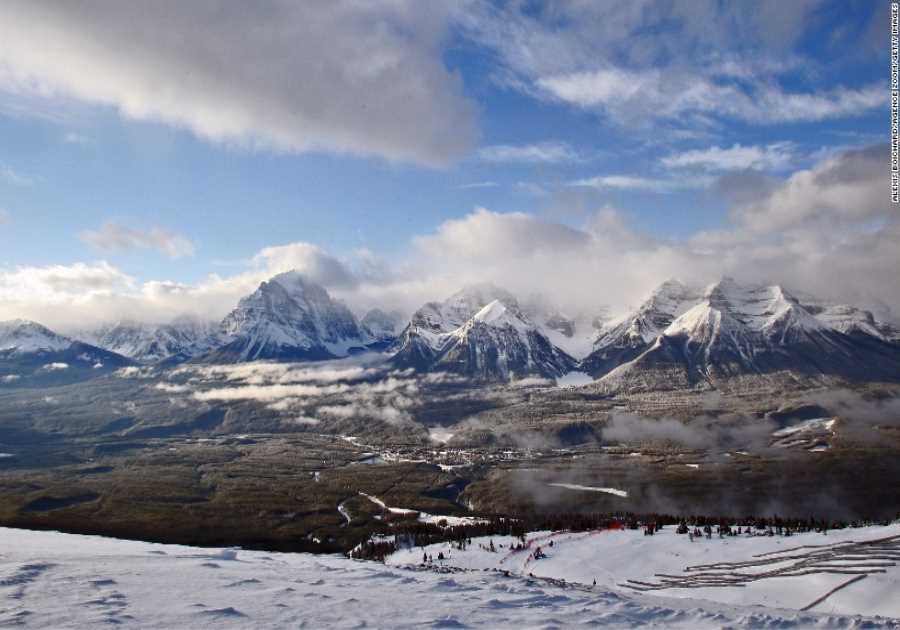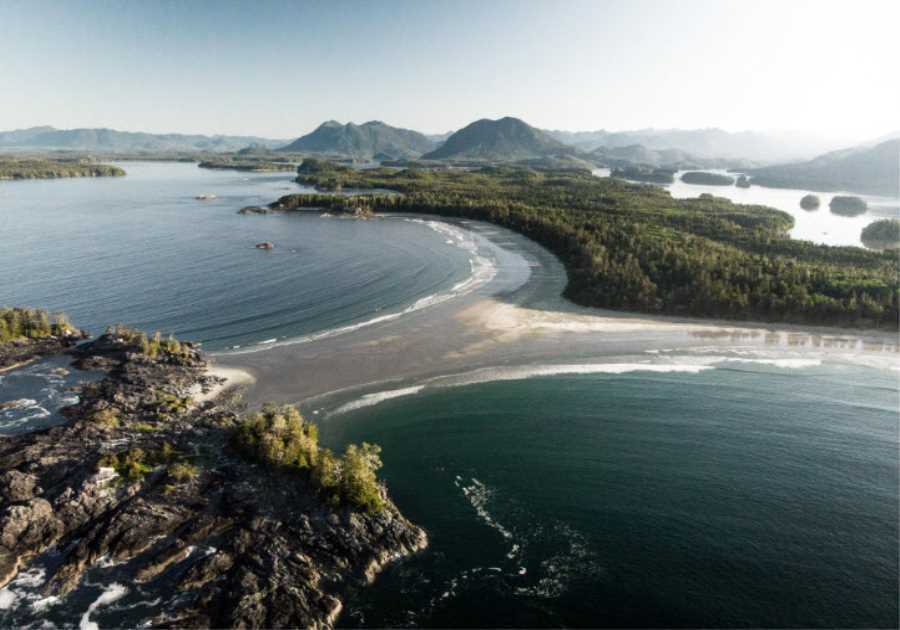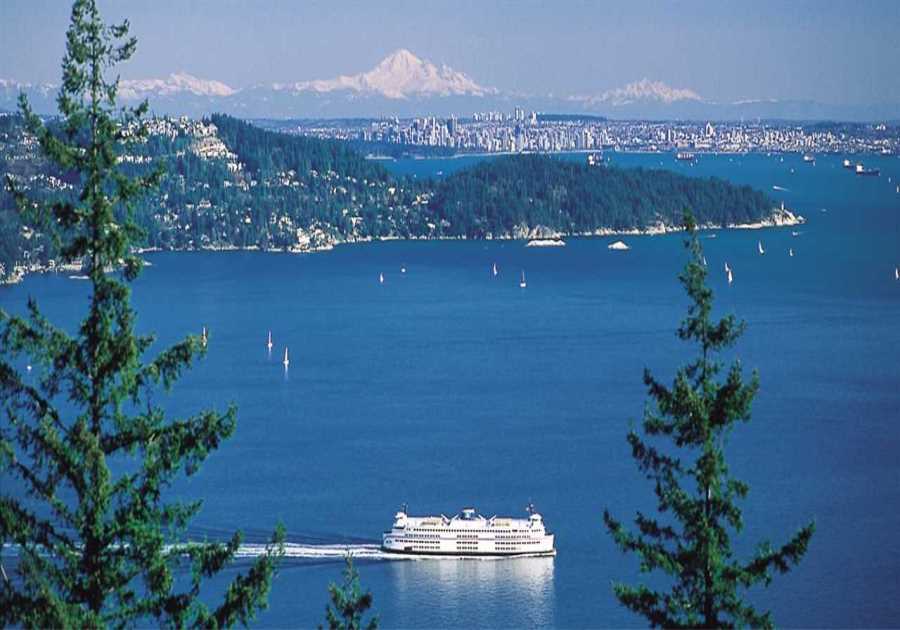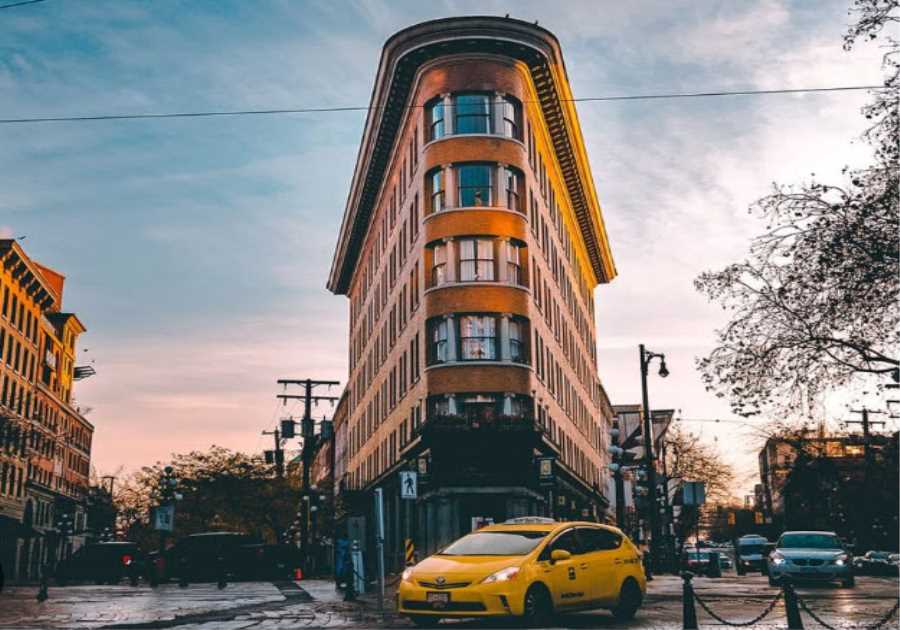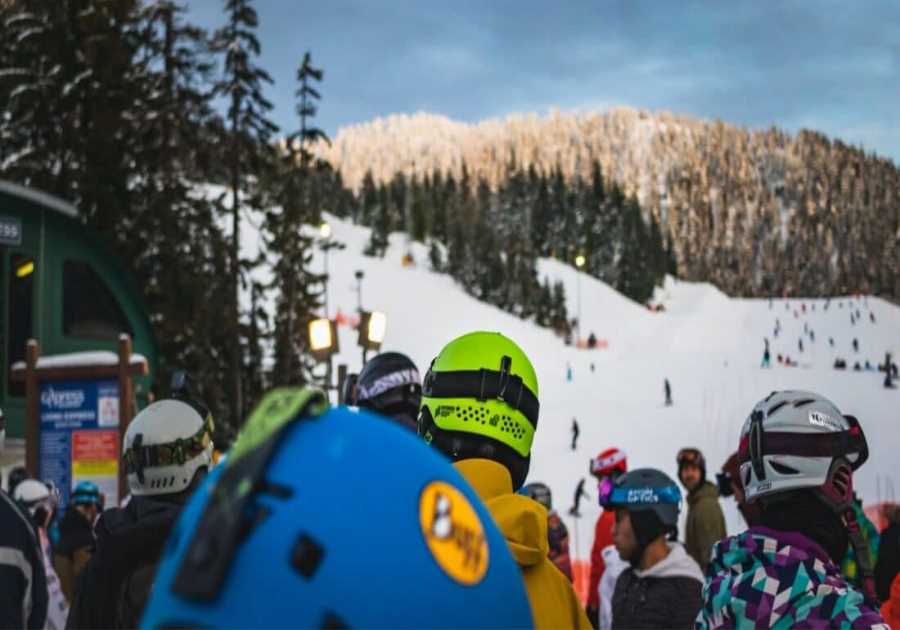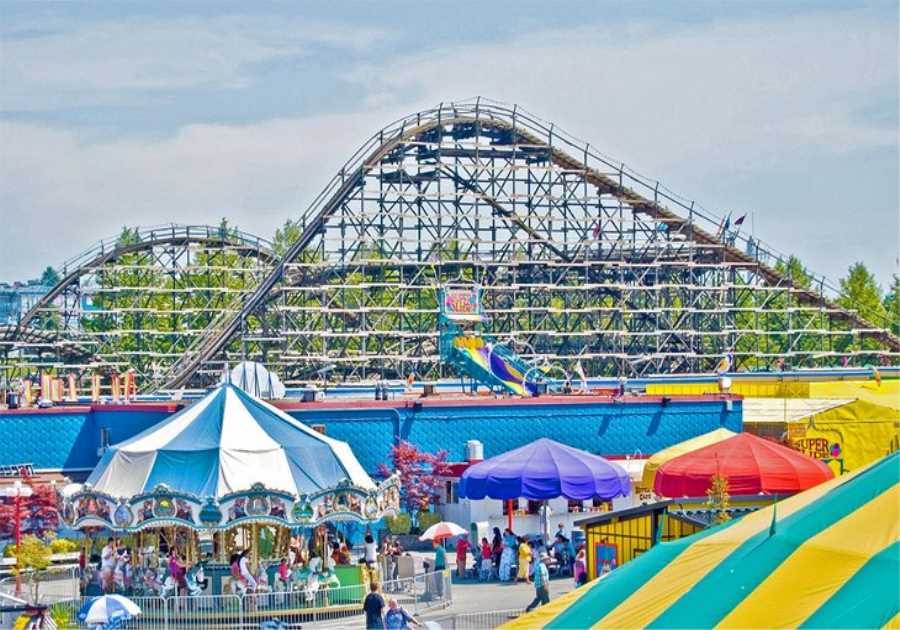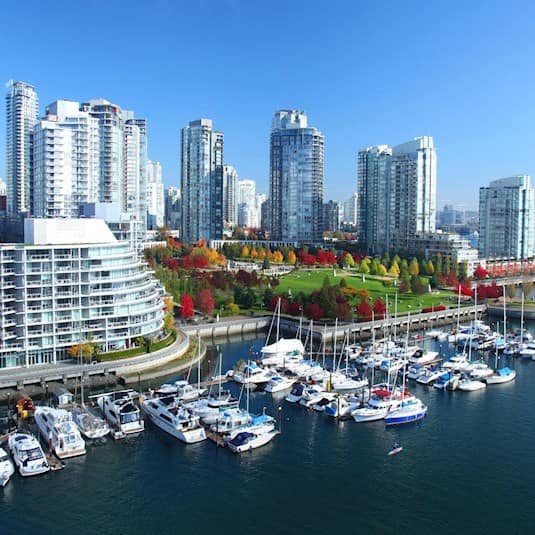
The Untapped Opportunities Through Exploring the Past and Present of Victoria, British Columbia.
Vividly, Victoria paints a melody of past and present. A captivating city with a cascading arts scene, myriad artisanal eateries, live music events and an eclectic mix of boutiques and galleries – the city has much for curious wanderers to uncover.
Yet beyond the mainstream, there lies a hidden world of untapped opportunities. From culture-soaked attractions to old-world charm, explore a destination where every moment is memorable.
What's truly captivating about Victoria is its varied nature; it boasts spectacular natural beauty full of serene walking trails juxtaposed against thriving urban vibrancy in the inner harbour district.
Step out on one of downtown's bike tours or strolls and gain insight into Victoria’s early beginnings as you visit cultural landmarks such as the Emily Carr House or The Legislature Building - two iconic structures with symbolic histories rooted in British Columbia’s former colonial lifestyle.
Away from the hustle and bustle of downtown street lifestyle, take time out to relax in one of many public parks like Beacon Hill Park – where deer roam free across manicured gardens while often surpassing pedestrians due to their native habitat rights – while easy access to the ocean provides ample swimming spots during summer months.
If you’re looking for activity-packed days, head to Fisherman’s Wharf, where sea planes and kayaks are abundant! Experience panoramic views aboard one of Canada's ever-popular whale-watching tours or indulge in exciting deep-sea watersports from paddle boarding or sailing.
Nowhere else allows visitors to experience such freedom within a land that combines adventure, relaxation, and thought-provoking culture mixed with ultimate escapism; what better way can you discover hidden treasures than in charming Victoria?
History
The history of British Columbia begins with the First Nations people. They have inhabited the area for thousands of years. These people depended on resources such as fish and the sea, while the land supplied them with food.
After the last Ice Age, Aboriginal people flourished on the region's abundant natural resources. These resources provided them with a way to earn money. In the 19th century, the area's natural resources were used to provide markets in Europe and Asia.
The Hudson's Bay Company established trading posts in the region in the early nineteenth century. This led to a flourishing fur trade between coastal Aboriginal people and British traders.
A major expansion of the forest industry occurred after the First World War. Today, the west coast is home to many craft stores, art galleries, and other attractions.
Geography
British Columbia is the westernmost province of Canada and borders the Pacific Ocean on the west. It is the third-largest province in Canada, after Quebec and Ontario. The province also borders the United States on the south, the Yukon on the north, and Alberta and Northwest Territories on the east.
Most of the province is mountainous. This includes the western continental Cordillera, the Coast Mountains, and the Canadian Rocky Mountains. The largest island in the province is Vancouver Island.
In the interior of the province are the Okanagan and Kootenay valleys. These mountain ranges, which are parallel, divide the province into two physiographic regions. Southeast of these mountain ranges is the southern interior of BC, drier than the rest of the province.
Politics
A range of political factions dominates British Columbia city politics. The province is famous for its picturesque nature and has a long tradition of environmentalism. However, the region is undergoing several demographic shifts, including those caused by the COVID-19 pandemic. In the past, the province's political landscape has been characterized by exaggerated class conflict.
Since the 1970s, British Columbia has had several political parties in power. Most recently, the New Democratic Party has enjoyed an overwhelming majority. During this time, the region has seen an explosion in rental prices for housing. These rising prices have led to a shift in the city's political leanings to the left.
One of the most significant factors in British Columbia politics is the cost of living. This is especially true in recent years. While the Lower Mainland is largely Liberal, the southern suburbs are increasingly dominated by the NDP.
Economy
The British Columbia city economy is an industrial and service-focused one, with a diverse set of industries. The economy is highly diversified and is growing faster than most Canadian provinces.
In 2016, B.C.'s economic growth exceeded the national rate of 3.9%. A major reason for the strong economy was higher employment. Higher starts drove this in Vancouver's real estate industry and apartment construction.
Other major industries include agriculture, mining, wood products manufacturing, and forestry. These industries produce a variety of commodities and value-added products. They have been a major revenue source for B.C. in the past and are expected to continue providing ample opportunities.
In the past, the BC economy was dominated by resource-based industries. This continues to be a large part of the economy. However, many other industries contribute to the economy, including life sciences, utilities, transportation, and retail.
Culture
The culture in British Columbia is very diverse. You can find Chinese, Japanese, Italian, Spanish, Persian and Indian communities in the province. Each community has its own cultural identity.
When you consider the size of the population, you can see how a diverse culture can thrive. A large part of the population is of Asian origin. It is also a popular destination for immigrants. This diversity creates a cosmopolitan culture in Vancouver.
One of the biggest reasons for this is its proximity to Asia. Since the end of World War II, the influx of immigrants from East Asian countries has increased significantly. In addition, the city is home to a large number of cultural institutions.
Some of the city's cultural institutions include the Royal BC Museum and the Vancouver Art Gallery. These institutions are great places to learn about the history of the region. There is also the UBC Museum of Anthropology.
Frequently Asked Questions
What is Vancouver's most loved food?
Sushi is a very popular food in Vancouver. There are many places that sell sushi in Vancouver so you need to make sure it is unique.
Sushi is a unique dish that appeals to people who like unusual food. Sushi has few calories and is therefore a healthy choice.
There are many types of sushi, and each type has its characteristics. California rolls have raw fish, while spicy sushi has grilled tuna.
It is best to eat sushi fresh. You should not buy sushi that has been stored for more than a few hours. You should not eat sushi for more than six hours after it has been prepared.
If you want to try some delicious sushi in Vancouver, then check out these places:
Maki Noodle House is a Japanese restaurant that serves traditional Japanese food and sushi.
Koi - This restaurant is known for its sushi, but it also offers other Asian dishes like noodles and ramen.
Sushi Maru- This restaurant offers a wide range of sushi, as well as special rolls.
Tojo's Restaurant – This popular sushi restaurant is located in Vancouver. It is known for its fresh sushi and original creations.
What are some other things you can do in Vancouver?
There are many activities to enjoy in Vancouver apart from sightseeing. You can play sports such as basketball or hockey, visit art galleries and learn about history, or just relax in a spa. There are many restaurants and bars that you can try. Vancouver is a great place to explore and experience new things.
What is Vancouver, Canada's most famous landmark?
Vancouver is well-known in terms of wine and food for its fresh seafood.
Vancouver is home to many microbreweries, including Storm Brewing Company and Granville Island Brewing Company.
Many craft cocktail bars also offer creative drinks such as Bluebird Cafe and Slainte Irish Pub.
You will also find a variety of restaurants that serve cuisines from all over the globe in the city, including Chinese and Mexican, Indian, Thai, Vietnamese.
You will also find many bakeries, cafes, patisserie shops, and other businesses selling delicious pastries and cakes.
For shopping enthusiasts, Vancouver is home to some of the largest malls in North America, including Pacific Centre Mall (Pacific Centre), Metropolis at Metrotown (Metropolis), and Westgate Square Shopping Centre (Westgate).
Other attractions include Science World. Museum of Anthropology. Museum of Contemporary Art. Vancouver Aquarium. Vancouver Aquarium. Vancouver Aquarium. Vancouver Aquarium. Vancouver Aquarium. Vancouver Aquarium. Vancouver Aquarium. Vancouver Aquarium. Vancouver Aquarium. Vancouver Aquarium. Vancouver Maritime Museum. Vancouver Aquarium. Vancouver Aquarium. Vancouver Aquarium. Vancouver Aquarium. Vancouver Aquarium. Vancouver Aquarium. Vancouver Aquarium. Vancouver Aquarium. Vancouver Aquarium. Vancouver Zoo. Vancouver Aquarium. Vancouver Aquarium. Vancouver Aquarium. Vancouver Aquarium. Vancouver Aquarium. Vancouver Aquarium. Vancouver Aquarium. Vancouver Aquarium. Vancouver Aquarium. Vancouver. Vancouver Aquarium.
Can I find cheap flights to Vancouver from other countries?
There are a number of ways to book cheap flights to Vancouver. You can search online for discounted airfare or sign up to a travel club, such as Expedia. You can also find last-minute deals on the airline website or at the airport.
You can also fly to a nearby city such as Seattle or Portland, then take a bus/train into Vancouver. You have options. Compare prices to find the best price for your travel needs.
Statistics
- *Likely to sell out: Based on Viator's booking data and information from the provider from the past 30 days, it seems likely this experience will sell out through Viator, a Tripadvisor company. (tripadvisor.com)
- The CCF's popular vote was high enough in the 1945 election that they were likely to have won three-way contests and could have formed government; however, the coalition prevented that by uniting the anti-socialist vote. (en.wikipedia.org)
- 75 percent of the province is mountainous (more than 1,000 metres (3,300 ft) above sea level); 60 percent is forested; and only about 5 percent is arable. (en.wikipedia.org)
- During the 1770s, smallpox killed at least 30 percent of the Pacific Northwest First Nations. (en.wikipedia.org)
- British Columbia has moved from approximately 10 percent of Canada's population in 1971 to approximately 13 percent in 2006. (en.wikipedia.org)
External Links
vancouver.ca
dailyhive.com
- News: Vancouver ranked highest in North America's quality of life
- Vancouver ranked fourth most-expensive housing market. Urbanized
botanistrestaurant.com
cbc.ca
- Road signs along Sea to Sky Highway offer insights into the history of Skwxwu7mesh. CBC News
- Temperature record broken in Lower Mainland -- again | CBC News
How To
Vancouver's Top 10 Museums
Vancouver is one of the most beautiful cities in Canada and one of the top tourist destinations worldwide. Vancouver is well-known for its stunning natural beauty, amazing food, world-class galleries of art, vibrant nightlife and outdoor activities. Did you know that there are many museums in Vancouver? This article will highlight the best museums in Vancouver.
- Museum of Anthropology (MOA), located in Downtown Vancouver across from Stanley Park, and adjacent to Science World. This museum contains many collections, including Chinese Art. Oceanic Art. Canadian Aboriginal Art. Prehistoric Art. Ancient Egyptian Art. Ansel Adams is the subject of a special exhibition.
- BC Sports Hall of Fame (BC Sports Hall of Fame): This museum is situated in downtown Vancouver, right next to the Olympic Village. Many exhibits are housed in this building, including a bronze statue sized for life of Gordie Howe (a legendary hockey player).
- Dr. Sun Yat Sen Classical Chinese Garden & Bonsai Collection – One of North America's largest and most renowned bonsai gardens, as well as one of the top in the whole world. There are thousands of bonsai varieties to be seen alongside bridges and pagodas, temples and teahouses as well as ponds, bridges, temples and pagodas.
- Vancouver Lookout - Also known as Grouse Mountain. From this lookout, you can enjoy stunning views of Vancouver, the surrounding area, and the Gulf Islands. A small visitor center can be found at the summit of the mountain, which has several exhibits, gift shops, as well restaurants.
- UBC Museum of Archaeology and Culture. This museum holds many historical items including totem poles and pottery.
- Museum of Vancouver - If you love modern art, this is the place to go. This museum has many original pieces of famous artists such as Andy Warhol. Keith Haring. Robert Rauschenberg. Jackson Pollock.
- Vancouver Public Library: The library contains a wide range of books, magazines as well as DVDs and computers. It even has a cool hologram exhibition. You will find many exciting events on the first level, especially in the summer.
- Museum of Contemporary Glass: Located in Vancouver's West End, this museum houses over 5,000 objects made from glass. The museum lets you explore the fascinating process of making glass art.
- Chinatown Cultural Centre is home two museums. The first is the China Through Time Museum, which explores the history of Chinese immigrants in Canada. The Chinese Canadian National Historic Site tells stories about early Chinese immigrants to British Columbia.
- Vancouver Art Gallery: This is Canada's largest art museum and features many internationally-respected artists like Rembrandt, Van Gogh and Picasso. Vancouver Maritime Museum is a museum that focuses on maritime history. The museum houses an extensive collection including ship models, paintings, photographs and many other items. These are just a handful of the wonderful museums that Vancouver offers. So if you're ever in the area, check some of them out! You won't be disappointed.
.png)
